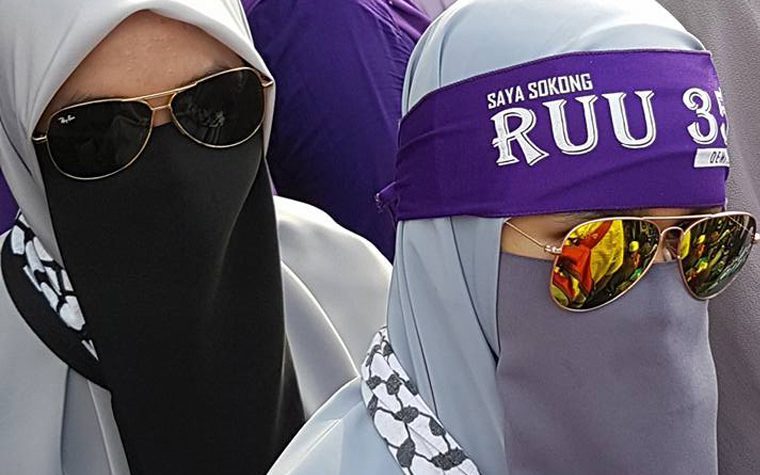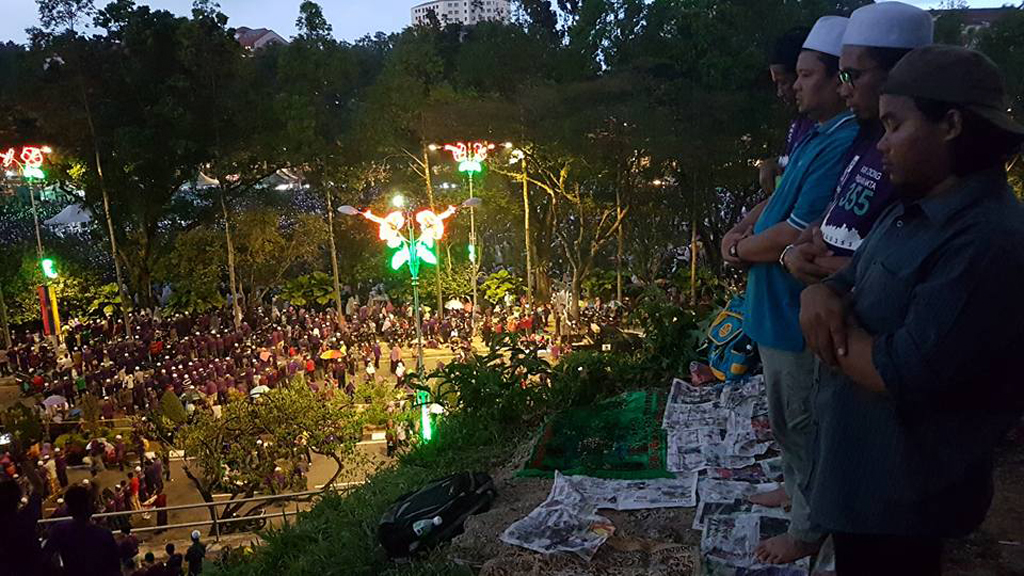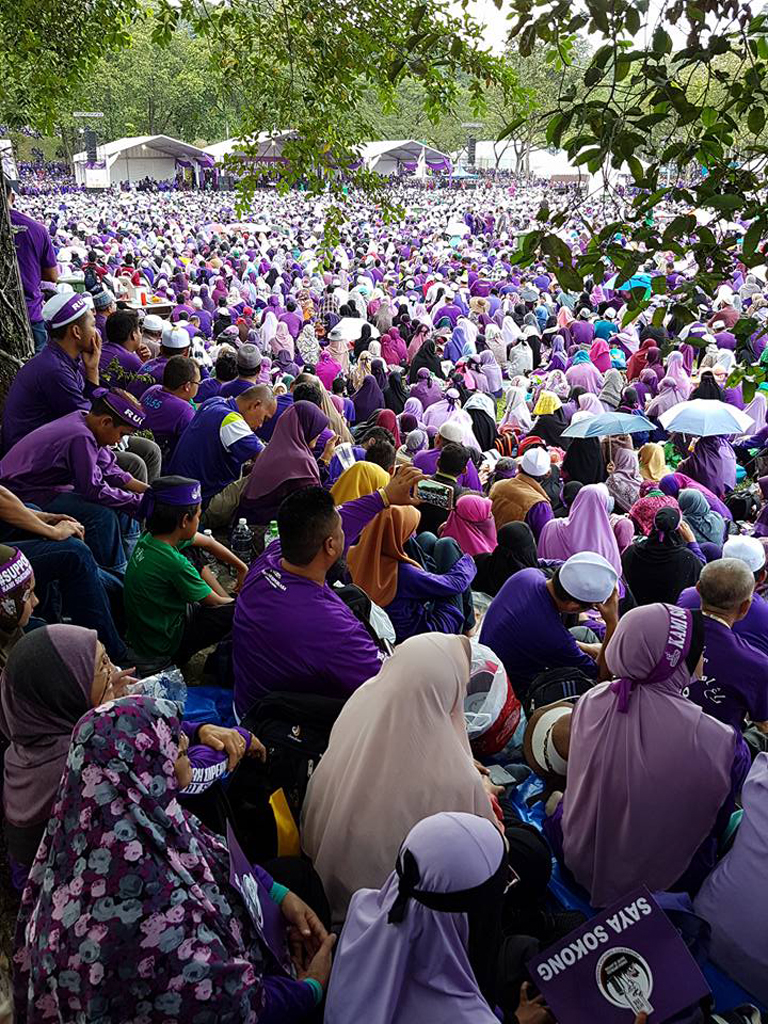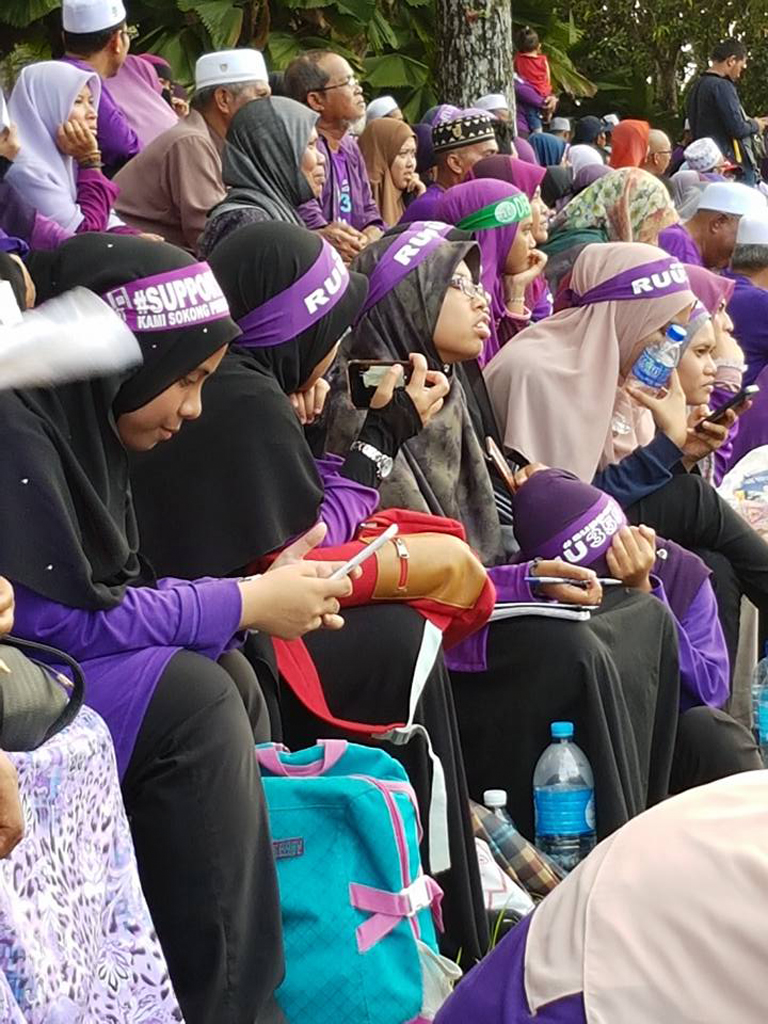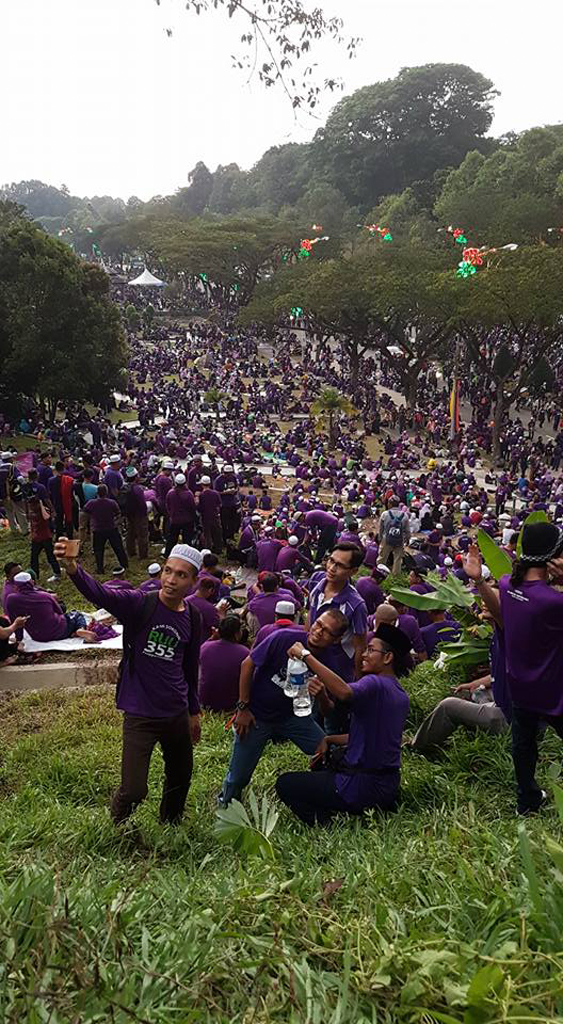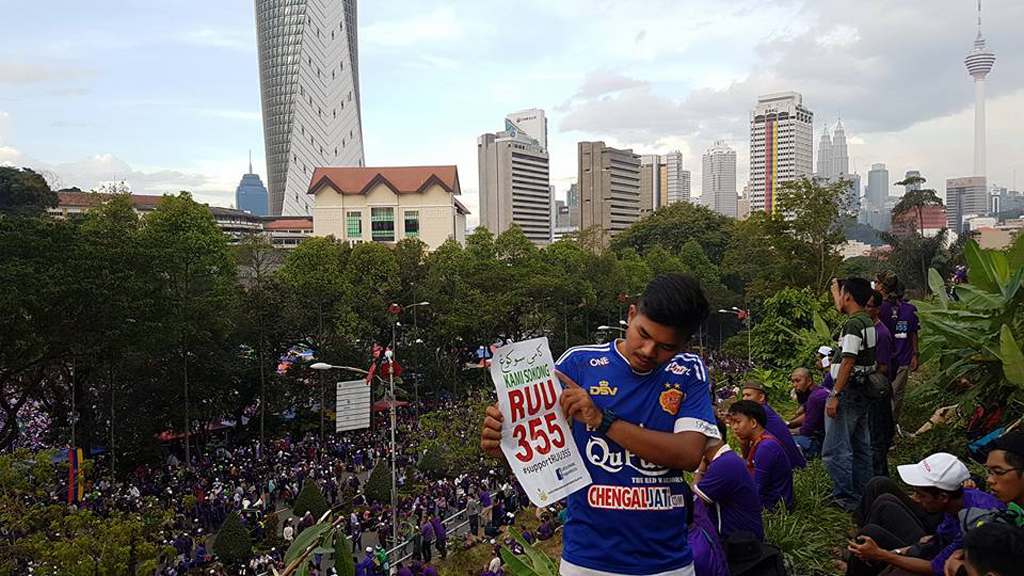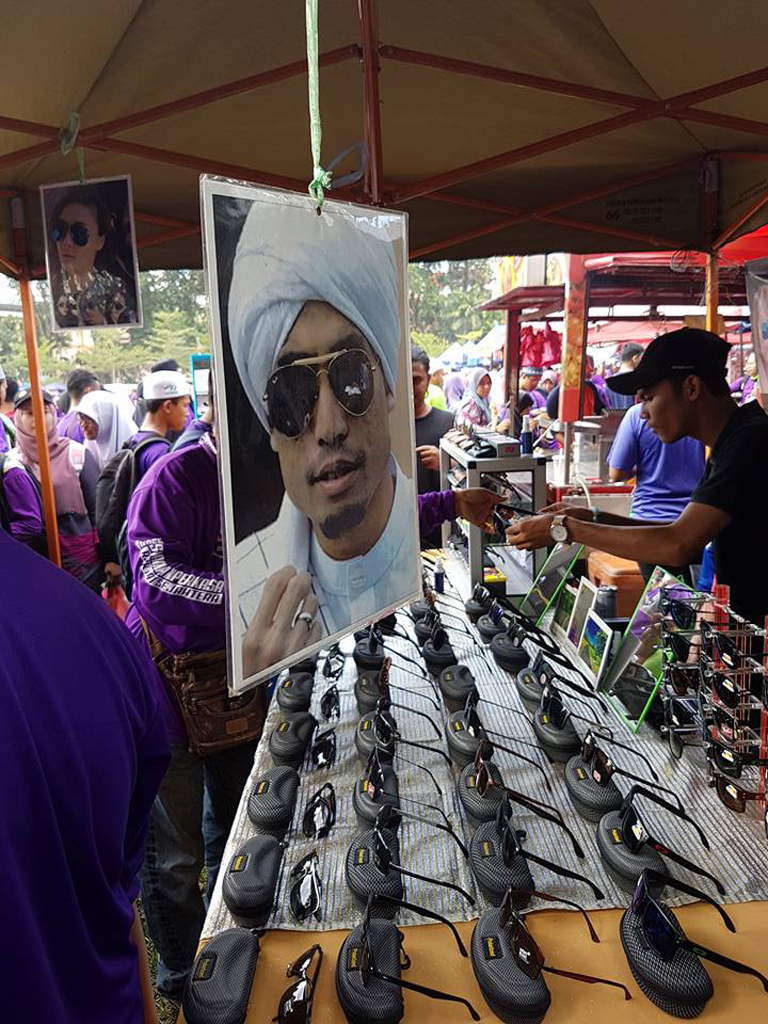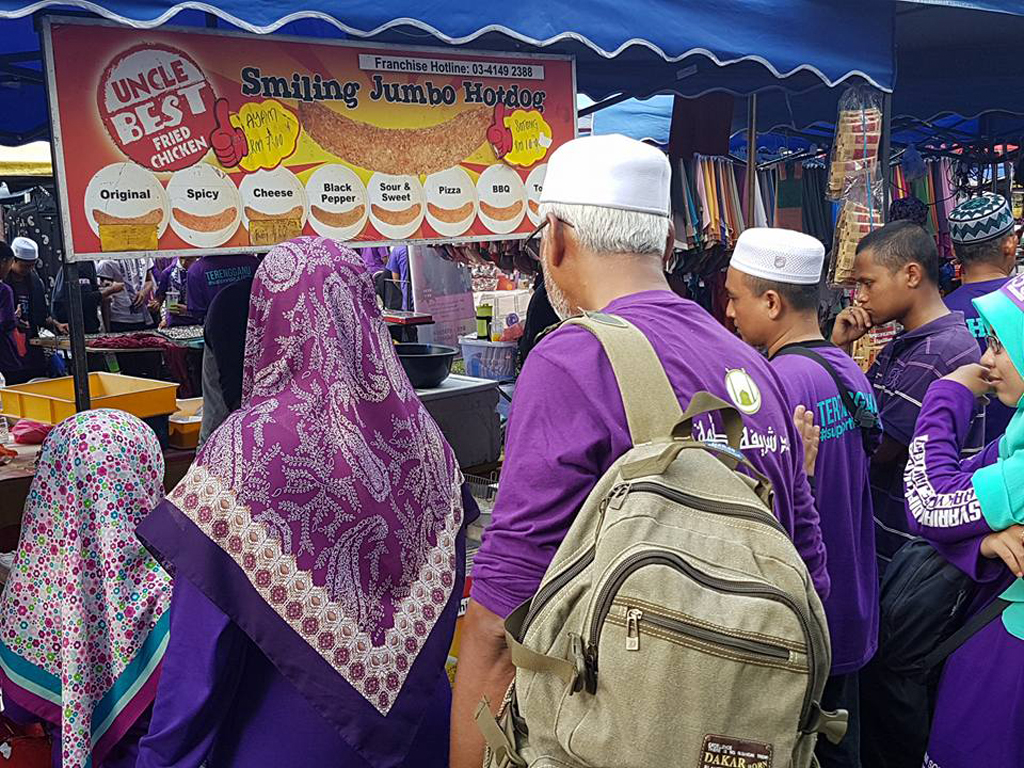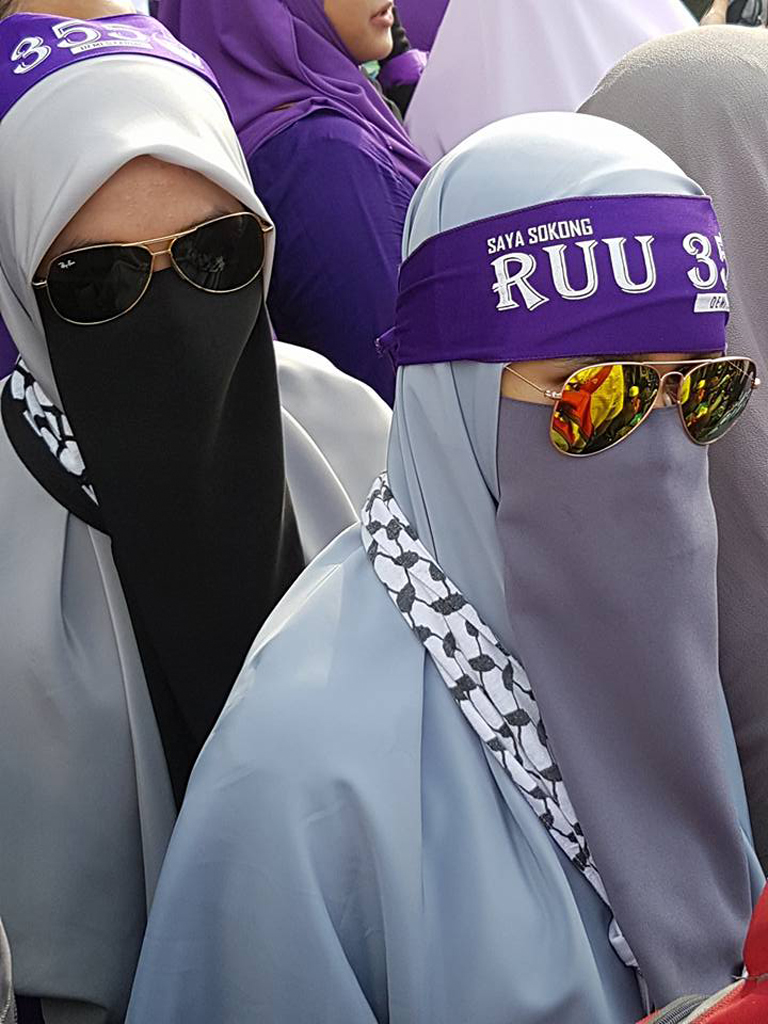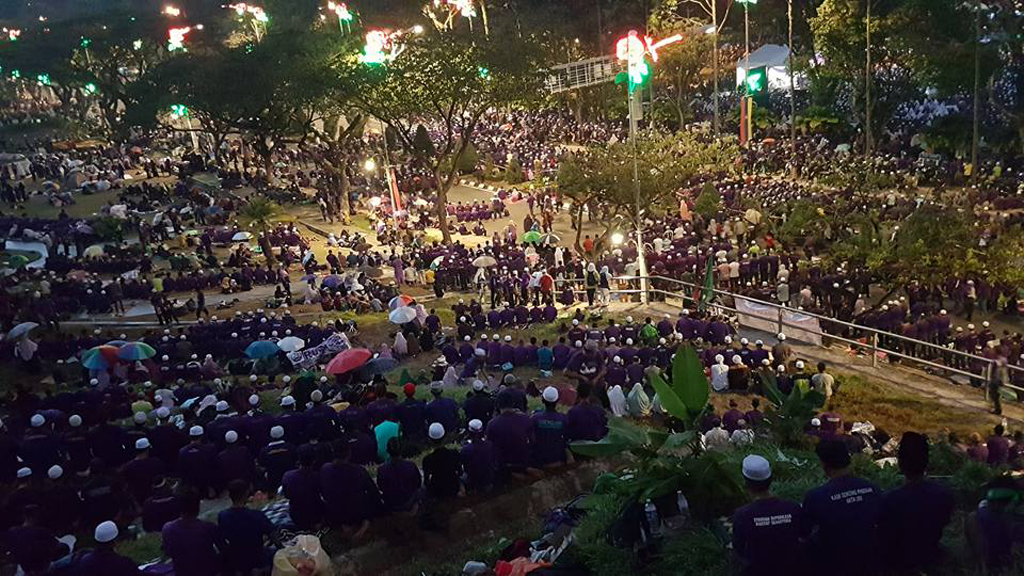Hew Wai Weng reports on Malaysia’s recent rally for sharia law, and what it says about the prospects for Islamic party PAS in upcoming elections.
On 18 February, Padang Merbok in Kuala Lumpur hosted Himpunan 355, a rally to support the enactment of the 1965 Syariah Courts Act, best known as RUU 355. The rally was organised by the Pan-Malaysian Islamic Party (PAS), together with a few Muslim organisations.
The enactment of RUU 355, proposed by PAS President Hadi Awang, is a contentious issue in Malaysia. PAS leaders have publicly reiterated that the main aim of the proposed amendment was not about hudud but merely to strengthen the sharia laws, while opponents claimed it is an unconstitutional move and a stepping stone for the implementation of hudud.
About 30,000 purple-shirted people attended Himpunan 355. This is slightly higher than the Malay crowd at Bersih 5. Yet, this should not be seen as indicative of the strength of PAS’s electoral support. While this figure reflects the ability of the Islamist party to mobilise a crowd, it also reveals its limitations.
After progressive leaders left the party and established Amanah, PAS is now facing an existential crisis. Key Muslim organisations such the Malaysian IKRAM Association and ABIM (the Muslim Youth Movement of Malaysia) have distanced themselves from the party’s leadership, which has been perceived as having close ties with UMNO (United Malays National Organisation). Hence, Himpunan 355 was an important effort for the party’s leaders to consolidate their support base at a time when many of its members are confused about the party’s direction.
Although Himpunan 355 was clearly politically-motivated, many PAS leaders claimed it was a religious gathering. Congregational prayers, Islamic chanting, religious-themed songs and a Q&A session with popular preacher Ustaz Azhar Idrus featured. Evening Mahgrib prayers under heavy rain reflected the religious spirit of many attendees. Yet, the speech of an UMNO minister in the Prime Minister’s Department, Jamil Khir Baharom, immediately after prayers brought electoral politics back to the forefront. Many attendants rallied for the enactment of RUU 355, but they did not necessarily approve of the close relationship between UMNO and PAS.
In the last few months, I have attended a few Islamic-related events and seminars in Kuala Lumpur. I have noticed grievances among Islamic-oriented activists towards the Hadi-led PAS. Some were unhappy with Hadi’s perceived pro-UMNO stand, as well as his confronting manners towards opponents. Although many in principle support the stricter implementation of Islamic laws, they were dissatisfied with the way PAS manipulated such issues for political gain. They were disappointed that PAS has projected a negative image of Islam among non-Muslims and has reduced the struggle of Islamic activism into merely the enforcement of laws.
Outspoken Perlis Mufti, Mohd Asri Zainul Abidin, best known as Dr MAZA, has openly voiced his disagreement with PAS’s proposed enactment of RUU 355. His religious voice is important in deterring potential PAS supporters, as his Islamic credentials grant legitimacy to pious Muslims seeking to reject RUU 355. Dr MAZA is particularly appealing for many young, pious, educated and urban middle class Muslims. Compared to secular and liberal critics, Dr MAZA’s disagreement poses a more effective challenge towards PAS’s goals, especially among conservative Muslims.
Acknowledging such challenges, despite banking on its traditional support bases such as religious schools and mosque committees, PAS is also trying to engage a broader audience by seeking endorsement from popular preachers, such as Imam Muda celebrities (contestants on a reality TV show of selecting the best young Imam), and Muslim NGOs, such as Malaysian Muslim Solidarity, Muslim Consumers Association of Malaysia, and Muslim Lawyers Association of Malaysia. Yet, it is unclear whether such endorsements will bring new support to PAS.
During the rally, most speakers avoided the contested term hudud and focused on the higher objective of Sharia. They also shunned away from questions about the technical aspects of its implementation and its political consequences. Some even welcomed the support of UMNO leaders towards the enactment of RUU 355, but remained silent on Prime Minister Najib Razak’s corruption scandals. Therefore, even though Himpunan 355 successfully mobilised PAS followers, it might not be able to convince them to throw their full support behind PAS leadership.
Many PAS leaders spoke of ‘Muslim unity’. Yet in reality, RUU 355 is a polarising issue — the division is not only between Muslims and non-Muslims and between Islamist-minded and secular-minded Muslims, but also among Islamist-minded Muslims who have different views on the strategies and priorities in pursuing their perceived Islamic agendas.
PAS president Hadi Awang was the last speaker at Himpunan 355. As the emcee invited Hadi to speak, the crowd closer to the front stage chanted ‘Allahu akbar’ (God is Great). However, the crowd further from the stage remained silent, only chanting after urged to do so.
But, it appeared that Ustaz Azhar Idrus was more popular than Hadi Awang among the crowd. Some people even began to leave the rally before Hadi Awang finished his speech. Perhaps this is an indication that PAS supporters, although still loyal to the party, are not necessarily happy with its current leadership.
After the rally dispersed, I took a Grab car back to my hotel. The Malay driver told me, ‘I do not support RUU 355, because I support UMNO’. His views hint that there are many traditional UMNO supporters who do not endorse the Islamist agenda, even though some UMNO leaders may use religious issues for political purposes.
Himpunan 355 reflected PAS’s strength in mobilising crowds, yet it also shows that its current leadership faces many challenges in consolidating and expanding its support base. The debates surrounding RUU 355 imply that while many conservative Muslims support Islamic agendas, they have different opinions on the timings, priorities, strategies and objectives of their religious struggles.
Hew Wai Weng is Visiting Fellow at ISEAS-Yusof Ishak Institute.
 Facebook
Facebook  Twitter
Twitter  Soundcloud
Soundcloud  Youtube
Youtube  Rss
Rss 